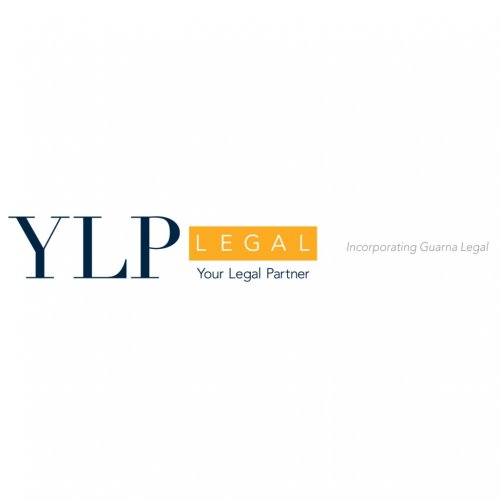Best Sanctions & Export Controls Lawyers in Adelaide
Share your needs with us, get contacted by law firms.
Free. Takes 2 min.
List of the best lawyers in Adelaide, Australia
About Sanctions & Export Controls Law in Adelaide, Australia
Sanctions and export controls are legal frameworks designed to regulate the movement of goods, services, technology, and finance across borders to meet Australia’s international obligations and promote national security. In Adelaide, as throughout Australia, these laws exist to prevent the proliferation of weapons, terrorism financing, and breaches of international law. Regulatory authorities strictly administer these controls, and breaches can result in significant penalties. Understanding your obligations is vital if your business exports goods or services, deals with overseas clients, or moves sensitive items or information internationally.
Why You May Need a Lawyer
Seeking advice from a lawyer experienced in sanctions and export controls is essential in several situations. Common reasons include:
- Determining whether your goods, technology, or services are subject to Australian export restrictions or controls.
- Understanding your obligations when dealing with foreign clients, particularly those in sanctioned countries or regions.
- Ensuring compliance when exporting to sensitive or high-risk areas.
- Responding to inquiries or investigations from regulatory authorities.
- Drafting compliance policies and providing training to staff.
- Dealing with frozen assets or financial transactions blocked by sanctions laws.
- Representation if you are accused of breaching export controls or sanctions.
Local Laws Overview
Sanctions and export controls in Adelaide are governed primarily by federal law, but local businesses and individuals must remain vigilant to their obligations. The key legislation includes the Charter of the United Nations Act 1945, the Autonomous Sanctions Act 2011, and the Customs Act 1901. These laws are enforced by the Australian Sanctions Office, Australian Border Force, the Department of Defence, and the Department of Foreign Affairs and Trade. In Adelaide, industries such as defence, education, technology, agriculture, and resources are most affected. Compliance programs and internal checks are crucial for businesses with any international dealings.
Frequently Asked Questions
What are sanctions?
Sanctions are restrictions imposed by governments to enforce international law, penalise target countries, entities, or individuals, and prevent activities such as terrorism or human rights abuses. They can regulate trade, financial transactions, or travel.
What are export controls?
Export controls are laws that restrict the transfer of certain goods, technology, software, or services to foreign countries for reasons including national security, foreign policy, or the proliferation of weapons.
Who administers sanctions and export controls in Australia?
The Australian Sanctions Office (ASO) administers sanctions laws, while export controls are mainly enforced by the Department of Defence and Australian Border Force.
Do sanctions and export controls apply to individuals as well as businesses?
Yes, both individuals and businesses in Adelaide must comply with federal sanctions and export controls. Failure to do so can result in severe penalties.
What are the penalties for breaching sanctions or export controls?
Penalties can include significant fines, criminal charges, imprisonment, and loss of export privileges.
Are universities and researchers affected by these laws?
Yes, universities and researchers dealing with overseas partners, international students, or sensitive research projects must comply with export controls and sanctions, especially if technology or intellectual property is transferred internationally.
How do I know if my product is restricted?
You can check the Australian government’s Consolidated List and Defence and Strategic Goods List or consult a lawyer for advice on whether your product or service is restricted.
Can I apply for a permit to export restricted goods?
Yes, you can usually apply for a permit or licence from the relevant authority, but you need to ensure you meet all legal and regulatory requirements.
Do Australian sanctions apply outside Australia?
Certain sanctions laws may extend to Australian citizens, residents, and companies operating abroad. Legal advice is essential to understand your exact obligations in overseas activities.
What should I do if I have already breached a sanction or export control?
Seek immediate legal advice. Prompt action may help minimize penalties and assist in dealing with regulatory investigations.
Additional Resources
For more information and support regarding sanctions and export controls in Adelaide, the following resources are helpful:
- Australian Sanctions Office
- Department of Foreign Affairs and Trade (DFAT)
- Department of Defence Export Control
- Australian Border Force
- South Australian Chamber of Commerce and Industry
- Local specialist law firms with experience in international trade and compliance
Next Steps
If you think you may need advice or assistance with sanctions and export controls in Adelaide:
- Gather all relevant information about your business activities, exports, and international dealings.
- Identify any actual or potential overseas transactions, especially those involving sensitive goods, technology, or sanctioned countries.
- Reach out to a legal professional with experience in sanctions and export controls law for a confidential assessment.
- Implement internal compliance programs to manage your risks proactively.
- Stay informed by regularly checking updates from relevant government bodies and refreshing staff training on compliance.
Taking these steps will help you manage your legal obligations responsibly and avoid severe penalties associated with non-compliance in Adelaide, Australia.
Lawzana helps you find the best lawyers and law firms in Adelaide through a curated and pre-screened list of qualified legal professionals. Our platform offers rankings and detailed profiles of attorneys and law firms, allowing you to compare based on practice areas, including Sanctions & Export Controls, experience, and client feedback.
Each profile includes a description of the firm's areas of practice, client reviews, team members and partners, year of establishment, spoken languages, office locations, contact information, social media presence, and any published articles or resources. Most firms on our platform speak English and are experienced in both local and international legal matters.
Get a quote from top-rated law firms in Adelaide, Australia — quickly, securely, and without unnecessary hassle.
Disclaimer:
The information provided on this page is for general informational purposes only and does not constitute legal advice. While we strive to ensure the accuracy and relevance of the content, legal information may change over time, and interpretations of the law can vary. You should always consult with a qualified legal professional for advice specific to your situation.
We disclaim all liability for actions taken or not taken based on the content of this page. If you believe any information is incorrect or outdated, please contact us, and we will review and update it where appropriate.

















